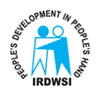INTRODUCTION
The integrated Rural Development of Weaker section in India (IRDWSI) called WIDA or the Koraput Project started 20 years ago in Koraput District, the interiors of ORISSA state. Koraput District in ORISSA is the largest District with a population of 1Million, of which 80% belong to Tribals, Dalits and backward Communities. the area is spread over 26000 sq. Km. bordering Andhra Pradesh and the North Western Districts of Orissa. The area around Koraput was once covered with rich forests and water resources but today because of mal-development planning these life sustaining resources are fastly depleting, and the very existence of the people who live closest to nature are threatened.
The basic work of the organization is "to help people to help themselves". However the work is based on people's involvement in their own development through participation, decision making planning, Implementation, Monitoring, evaluating, Manage, and own the entire process of development WIDA has focuses on the enabling people to identify their own capacities, unfold their potentials for an appropriate intervention of action, based on local knowledge, wisdom and skills.
The aim of WIDA is to accompany the poor on a long term basis to facilitate the programme of capacity building, community organization, empowerment and sustainable development through a systematically designed process of human potential development, Community health, eco-development and non agricultural activities towards establishing leadership of the individuals and a community as a whole - empowerment of communities through people's leadership.
HISTORY
WIDA started its project in December 1980, after four years of preparations. In 1976 was a first request for a development programme in Koraput proposed by JELC (Jeypore Evangelical Lutheran Church) and was positively responded. Dr. K. Rajaratnam, Director, CReNIEO was chosen to undertake a study of the area in 1978 after a second request to LWF the previous year.
In the village Sunabeda, Koraput District, a first Development Consultation was held in 1979, a workshop with JELC, LWF, MNZ, UELCI, CReNIEO and NGO's as participants, which proposed a scientific study of 100 villages by CReNIEO. During the same period, a field study was undertaken taken by JEILC youth and a CReNIEO team (July - Dec. '97)
The second development consultation was held in April 1980, with representatives from all the churches, funding agencies, NGO's, CReNIEO and UELCO as participants with a formulation of a project proposal as an outcome. In May the same year, negotiations were held with the funding agencies (CLWR, Canada and Lutherjalpen) and were concluded in December. WIDA started to organize and settle the area of operation, select and train field staff. During one month (Jan - Feb 1981) the selected staff was trained by CPRD in Hyderabad, followed by a reorientation in march the same year. In January 1981 WIDA established a field office on land contributed by JELC in Semiliguda, Koraput District.
After six Months of Settling and organization and further discussions with the funding agencies, July1981 became the month the project started its field work and phase I and has continued for almost 20 years with the same basic ideology and aims.
IDEOLOGY
The Project believes in people's knowledge, wisdom and power. The approach to development will be through the people's participatory Process. The Project attempts on people's plan, people's empowerment and sustainable development. Major Human potential areas like self esteem, dignity, respect, knowledge, attitudes and decision making will be the foundation to the peoples development.
While working with the people the project staff has been enlightened by the grim realities of the people's life in the context of two Districts contrary economics - Modern vs. Indigenous or Urban vs. Rural and Forest based livelihood
Efforts of the government programmes so far has been exhibiting a lacuna in understanding this conflict i.e. the contradictory goals which always ended with failure in enabling the people to participate in their own development.
The forces of exploitation has been operating in a quiet and in a disguised manner uprooting thousands of people from their own habitat. National Development has lead to landlessness, increase in poverty due to appropriation of common property resources of the community and depriving both the individual ownership of resources and the resources owned collectively.
It is in the context the project began the work in understanding the root cause of poverty of an individual and that of the communities.. Basing on this learning a viable educational methodology so evolved and at times changes are made to be more practical and effective in enabling the people in understanding and relating micro level issues to a macro reference of modern development of growth, progress and prosperity and look to their own past and present situation.
Any project will emerge apart from the Government to work with the majority is very much bound by time plan, resources, personnel, technical know-how. Identity and area of operation. While we continue to unlearn and learn from our involvement in development together with people we often experience and realise that change do not happen in favour of the poor so quickly. With this hypothesis in our mind we decided to work for a period of 20 years of partnership with the people, Resource, Agencies and the Government.
We indeed accept our failures and weakness, which is our guiding factor in strengthening our fight and effort in the area. We also realise that there is a great deal of self Critic in looking at the conflicts between values preached, Practiced and sustained.
Fully aware of this conflict, we are finding and searching with the help of our spiritual and cultural heritage to facilitate people based development. We believe involvement through an integrated programme will eventually bring overall change among the people for better quality of life and thus promote humanitarian development.

